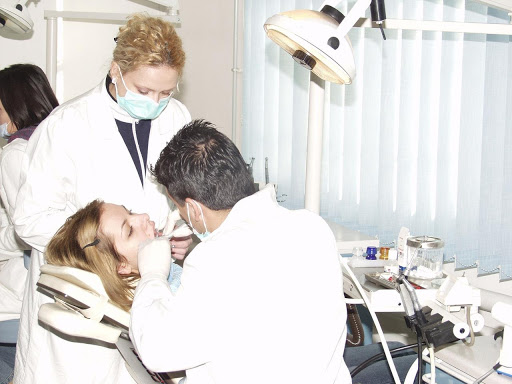Can Gum Disease Cause Cancer?

Gum disease is a very serious condition that affects the mouth and many people don’t take it seriously enough until it’s too late. Gum disease is categorized as a serious infection that can degrade the integrity of your jawbone when not taken care of. Gum disease is a very serious disease however it is also very preventable which is good news if you find yourself dealing with this problem.
What Causes Gum Disease?
Gum disease is oftentimes caused by a simple lack of basic oral hygiene practices and care. In severe cases where gum disease is left untreated for long periods of time, it can actually lead to tooth loss which is not pleasant at all. If you suspect that you may be dealing with gum disease but don’t know what the exact symptoms of the condition are, continue reading to find out more.
Below, we’re going to provide you with a detailed look at all of the symptoms and signs to look for if you suspect that gum disease is starting to impact your life.
The question is, Can Gum Disease cause cancer?
We all know how important it is to keep up with your oral hygiene for reasons related to keeping your breath fresh and avoiding tooth decay. However, recent studies have been conducted which are beginning to show some interesting links between the health of your mouth and how at-risk you are of developing specific types of cancers.
Gum disease happens in two main stages, the first stage is simply an infection which begins to degrade the quality of your jawbone when left to progress. More severe gum disease is known as periodontal diseases which is a bacteria that targets the bones and soft tissue of your teeth.
Here are some of the most obvious symptoms of gum disease:
- Bad Breath
- Sensitive Teeth
- Shifting Teeth or Wiggly Teeth
- Swollen Gums
If you notice any of these signs, you need to contact your dentist so that they will be able to give you an accurate diagnosis of exactly what the issue is. As these signs get progressively worse, it’s important for you to pay attention and address them to reduce the odds of the disease becoming more serious.
While the current evidence does point to a potential link between gum disease and specific types of cancers, other factors impact the likelihood of you developing certain cancer types. Your age, gender, pre-existing medical condition, and more will impact how susceptible you are to developing certain types of cancers with gum disease as a precursor.
The primary enzyme that has been found in particular cancer tumors has also been found to be present in the mouth and can act as an “enhancing” agent to gum disease.
Preventative Measures to Cure Gum Disease
You shouldn’t get too discouraged however, thanks to the fact that there are several preventative measures that you can take to reduce your odds of developing gum disease in the first place. Before we get to all of the preventative steps that you can take to cut down on your odds of developing gum disease, let’s take a look at all of the treatment options available for those who have been diagnosed.
Some of the most popular treatment options for gum disease are enzyme suppressants, antibiotic gel, surgery, oral antibiotics, medication, and more. These are all some of the most commonly used solutions for those who suffer from gum disease. To avoid those treatments altogether, you should practice preventative care to reduce your chances of developing gum disease in the first place.
Preventative Measures To Prevent Gum Disease
- Keep your toothbrushes germ-free
- Brush your teeth correctly
- Drink Antioxidant Tea
- Use a tongue scraper
- Rinse your mouth out with baking soda and warm water
These are a few simple steps that you can take to help avoid having to deal with gum disease. By performing these simple care routines on a consistent basis, you will be able to maintain a healthy mouth that is free of all sorts of harmful bacteria.
People Also Ask
Can gum disease cause health problems?
Gum disease can cause a wide range of other health problems besides cancer including heart disease, stroke, diabetes, and more.
Is gum cancer deadly?
Gum cancer has the potential to be deadly depending on how fast it grows and mutates. By identifying it early on you can easily cure it however the longer it goes ignored the worse it will become.
Is gum disease permanent?
When you catch gum disease early on, it can easily be cured however the longer it goes neglected the more difficult it becomes to treat.
Understanding the answer to, “Can gum disease cause cancer?”
Use all of the tips and information that we’ve given you in this article to fight gum disease right where it stands so that you can live a happy and healthy life. For more information on this please contact Dr. Dalesandro today.
Frequently Asked Questions
How often should I brush my teeth?
Does a root canal hurt?
What does an abscessed tooth feel like?
What would be considered a dental emergency?
Why are my teeth so bad even though I brush?
How long do dental implants take to heal?
How much do braces cost?
How Long Can a Cavity Wait to Get Filled?

